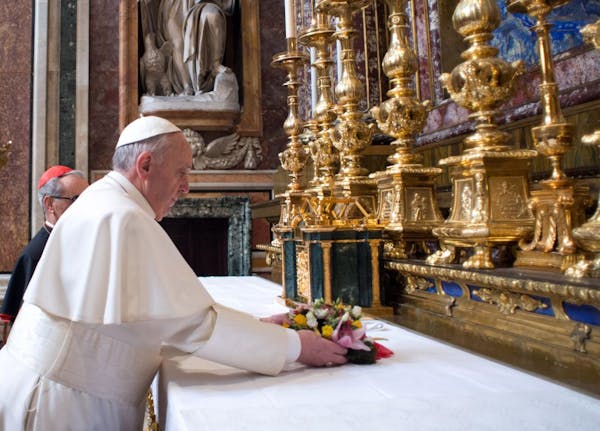In this new pope, U.S. Catholics have a leader who defies easy categories: He has lived simply in a Buenos Aires apartment, often riding public transit among fellow Argentines who know him as "Father Jorge."
Yet as one of the world's 19,000 Jesuits — "God's Marines," with reputations for intellectual rigor and comfort with competing ideologies — he survived the Society of Jesus' lengthy education and formation protocols.
He has forcefully opposed abortion, euthanasia, same-sex marriage and adoptions by gays, but also taught deep respect for gays and lesbians as children of God. He publicly embraced ministry to HIV patients, traveling to a hospice in 2001 to symbolically wash and kiss the feet of 12 AIDS patients.
By all accounts, his humility and sense of social outreach suffused his ecclesiastical rise in South America, where it's not uncommon for scattered believers to go a year without encountering a priest: An Associated Press profile of the new pontiff notes that, in a speech last year, then-Cardinal Bergoglio accused fellow church officials of hypocrisy for forgetting that Jesus Christ bathed lepers and ate with prostitutes.
To the extent that Pope Francis focuses his church on root teachings about poverty and justice, he may leave some U.S. Catholics wondering what happened to their issues — the role of women in Catholicism, a push for (or against) liberalized doctrines, damaging effects from sexual-abuse scandals, bureaucratic reform from the Vatican on down.
His history suggests that, like Popes John Paul II and Benedict XVI before him, he'll want a church true to its beliefs, not one that tailors principles to please those who disagree.
Readers Write: Caucus system, state Sen. Nicole Mitchell, voting for RFK Jr.
Turn off cellphones in state's classrooms
How many hostages are still alive? Hamas doesn't seem to know


